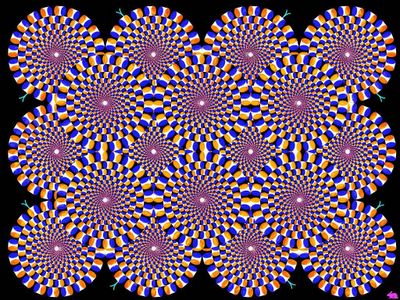
According to blogger Tony Pierce, one of the surest ways to get fired from your job is to post about work. So I'm going to be very careful here, because I can't afford to get fired.
But the only thing I can think to blog about right now is that I spent eight hours today being deposed by an attorney from the U.S. Department of Justice, Washington D.C. No, I'm not in trouble, but I am giving expert testimony in a litigation case, and today was the opposing side's turn to examine the witnesses before trial.
When a fellow sangha member heard that I give testimony for hire in civil actions, her first reaction was to exclaim, "Well, that's immoral!" I don't agree, but her statement made me carefully consider the ethics of providing expert testimony.
As a Buddhist, I have received the precept of "Speak truthfully. Do not tell lies." So not only am I under oath when I testify, but I also vowed to be truthful in all dealings. Part of being a credible witness is having a reputation for honesty, so who better than a Buddhist to testify?
Another percept says "Do not praise self at the expense of others." Certainly being under oath does not forbid one from speaking of the faults of others, but mindfully following this precept provides one with good relations on both sides of the litigation, potentially making one more successful as a witness.
Then there's the paramita of Right Speech. The paramitas, or "perfections" are not precepts, but rather attributes of those on the spiritual path. Right Speech incorporates not lying and not speaking of the faults of others, but also includes skillful means, saying the right thing at the right time for the right reason leading to the right result.
So following the Buddha way, in my opinion, does not preclude one from being an expert witness, and a follower might actually be exactly what this court system needs right now, an honest, caring, independent witness who will speak the truth, without slandering those holding other opinions.
That being said, it's hard work. The mental concentration, sustained over eight hours, is exhausting. In other words, it's not like sesshin, but sesshin helps build up the joriki necessary to put your concentration where you want it, when you want it for as long as you want it for the eight hours of examination. Opposing council is constantly trying to turn your words around, put words in your mouth, and get you to agree while under oath to things that you did not mean to say.
So picture this: at one end on a long conference table sits a court reporter, recording every word said. To her left sits your humble narrator and to her right, across from me, sits the opposing council, the U.S. Deptartment of Justice attorney. By my side are two attorneys representing my client's case, objecting to opposing council's questions when they deem them out of line. The rest of the conference table is occupied by no less than six other attorneys representing various codefendants in the case, occasionally objecting to opposing council's questions and occasionally objecting to my responses, depending on their positions and their clients' interests. Everyone is hanging on every nuance, every possible meaning, of every word in each question and answer.
It's stressful. And it's going to continue tomorrow as well - I'm not done yet. After the DOJ attorney is done with me, then the other codefendant's lawyers get their turn to ask me questions.
For some people, just being in a room with that many lawyers is a cause for tension. But some call it a character defect, some call it a personality flaw, but I like lawyers. I like the way their minds work, I like the way they abstract complex problems into legal terms, and I like their inquisitiveness.
But I'll be glad when it's all over. At least I'm getting paid for this. What a way to make a living!

1 comment:
This is a fascinating episode. And as usual dharma-grist for your mill.
I bought book by Joseph Goldstein subtitled "The Practice of Freedom" since it was the 4th of July and that seemed a patriotic thing to do. By the time I got 20 pages in, I had encounterd most of the vocabulary you use in this post. The way the paramita of "right speach" is made fundamental by its rooting directly in the 4th great truth impresses me. It is particularly interesting to contrast this "perfection" attribute with the enormous emphasis ancient and Hassidic rabbis placed on the harmfulness of "loshen hara" or "evil speech", the negative form of the Right Speech concept, it seems. They went so far in the Talmud as to place slander and murder in the same category of grievous crimes and in Hassidism, the rabbi Chofetz Chaim refined the concept to the point that it was considered harmful TO OTHERS to badmouth oneself: i.e. the greatest care should be taken in speaking...doesn't sound like our tabloid culture at all [except around lawyers!] I think I'll finish the book.
...But some call it a character defect, some call it a personality flaw, but I like lawyers....
I can understand that.
Post a Comment